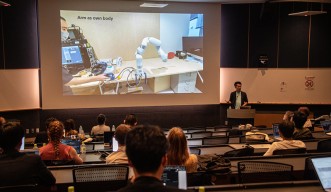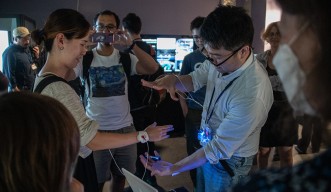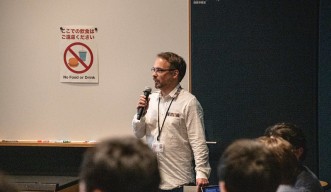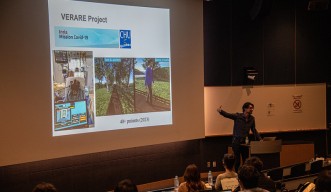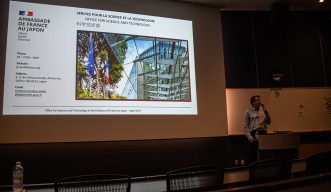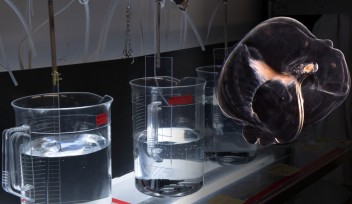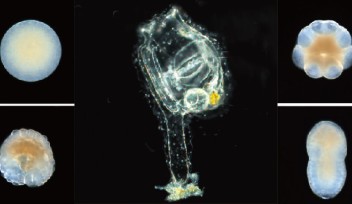OIST hosts French-Japanese Seminar on "Metaverse and Virtual Reality"
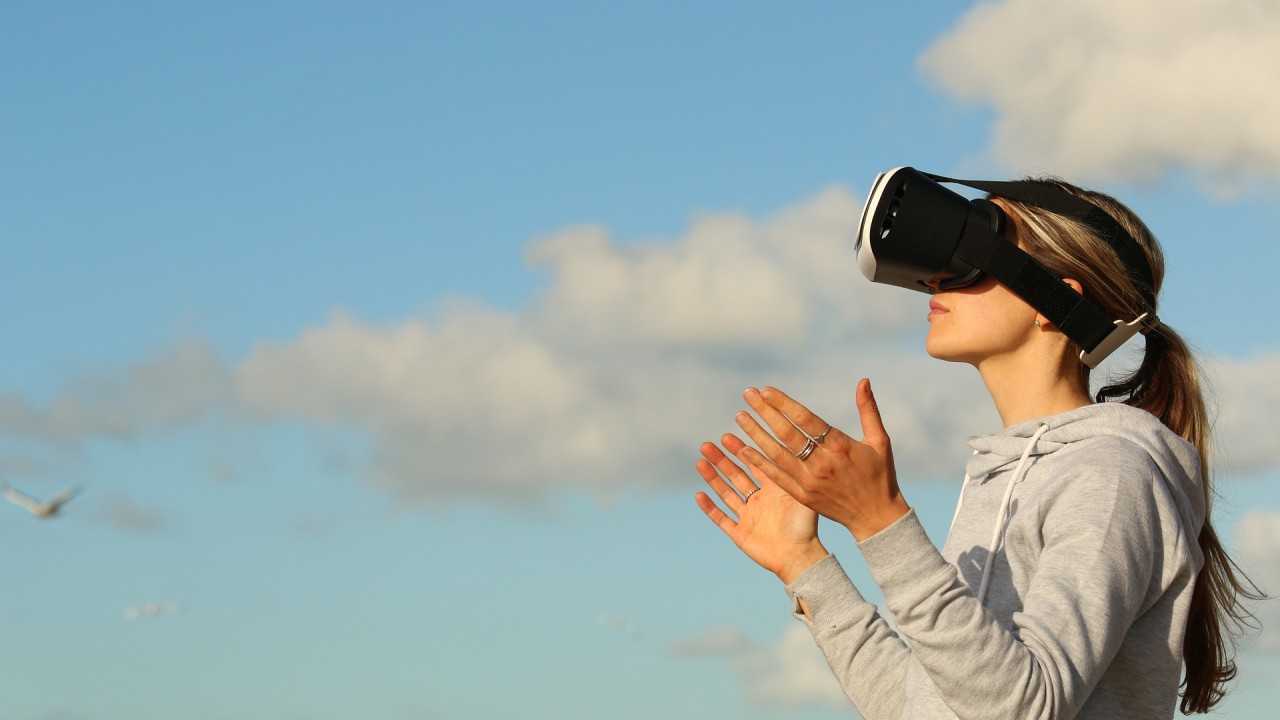
Written by Nic Shannon and Merle Naidoo
On Friday, April 21, 2023, Okinawa Institute of Science and Technology (OIST) welcomed participants of the French-Japanese Seminar on “Metaverse and Virtual Reality - The Science and Technology of Interacting with Digital Worlds”. The Seminar was the brainchild of Dr. Anatole Lécuyer, Research Director at Inria, France's National Institute for Research in Digital Science, who came to OIST in March 2023 as a guest of TSVP, OIST's Theoretical Sciences Visiting Program.
Its goal was to gather experts from Japan and France working on a wide range of areas in science and technologies needed to build the Metaverse, to exchange ideas and build collaborations. "Virtual reality has always been a multi-disciplinary subject," said Dr. Lécuyer. "It’s too big a challenge to face alone".
The seminar was hosted by TSVP, with funding provided by the French Embassy in Japan, and was co-organized by Dr. Shunichi Kasahara of Sony Computer Science Laboratories, who recently joined OIST as a Visiting Researcher. "We can imagine having new technologies, abilities or new bodies, but how do we subjectively feel it as self?" Dr. Kasahara asked.
Participants in the seminar were welcomed by OIST's Dean of Research, Prof. Nicholas Luscombe, who introduced OIST's mission, and highlighted the importance of visitors to realizing its goals.
The first session of the seminar, on "Embodiment and Interaction", featured Prof. Takuji Narumi (University of Tokyo), Prof. Rebecca Fribourg (Ecole Centrale de Nantes) and Prof. Maki Sugimoto (Keio University), who explored how people interact with and feel about their avatars in a virtual world.
In the next session, on "Augmented Reality", Prof. Guillaume Moreau (Institut Mines-Telecom Atlantique), Prof. Daisuke Iwai (Osaka University) and Prof. Yuta Itoh (University of Tokyo), highlighted some of the engineering challenges and opportunities associated with building VR technology.
After lunch, participants reconvened to learn about the state-of-the art in tactile feedback and remote embodiment, through presentations on "Haptics" by Prof. Kouta Minamizawa (Keio University), Prof. Yutaro Hirao (Nara Institute of Science and Technology) and Prof. Arata Horie (Keio University).
The final session of the seminar, on "Cognition and Neuroscience", addressed the way interactions with virtual reality affect human brains through talks by Dr. Léa Pillette (CNRS -French National Centre for Scientific Research) and Dr. Kazuhisa Shibata (RIKEN Center for Brain Science).
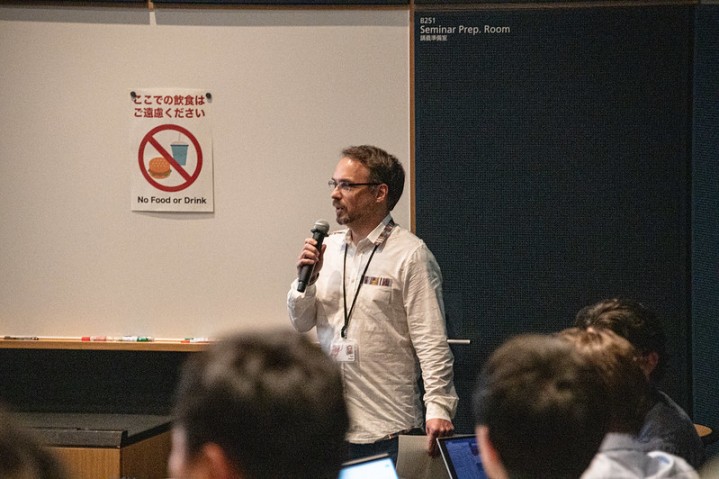
The seminar was followed by a public lecture webcast on Zoom and attended by over 100 people, in which Dr. Lécuyer and Dr. Kasahara spoke about the current and future research paths related to the Metaverse.
Dr. Kasahara posed the question “When humans integrate with computers and gain different bodies and abilities beyond what we currently possess, how do we define our humanity?
He explained that if users lose the feeling that it is their bodies performing certain tasks, they may not properly realize the outcomes and flaws of their behavior. Preserving self-attribution is an important part of designing human-machine integrated systems. “We have to think about how we can design to keep the attribution of the self,” Dr. Kasahara stated.

Dr. Lécuyer described what could be the future of our interactions with virtual worlds. “We consider that these technologies can become in return an effective tool to study human perception and behavior,” he stated, explaining that the focus of future work in virtual reality is on inducing more physical engagement with the human body, but also more cognitive engagement, notably by means of neural interfaces and physiological computing.
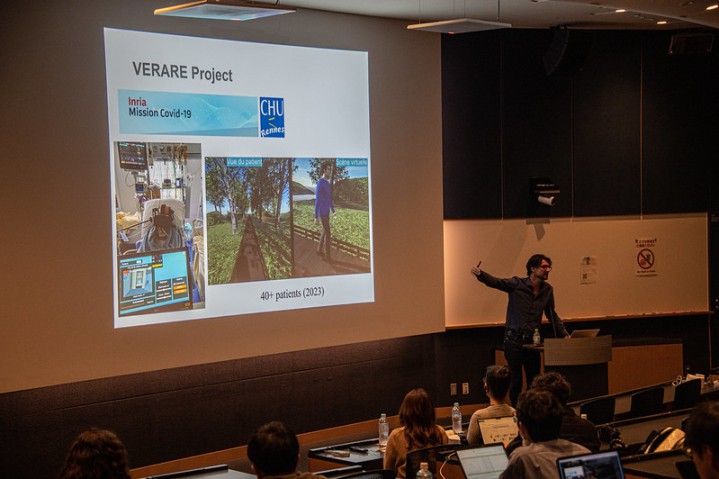
Finally, the event was brought to a close by Dr. Jean-Baptiste Bordes, Science Attaché of the French Embassy in Japan, who described opportunities to deepen scientific collaborations between France and Japan. He stated that researchers or students eager to spend time working or studying in France can receive funding for their stay (https://jp.ambafrance.org/article17130).
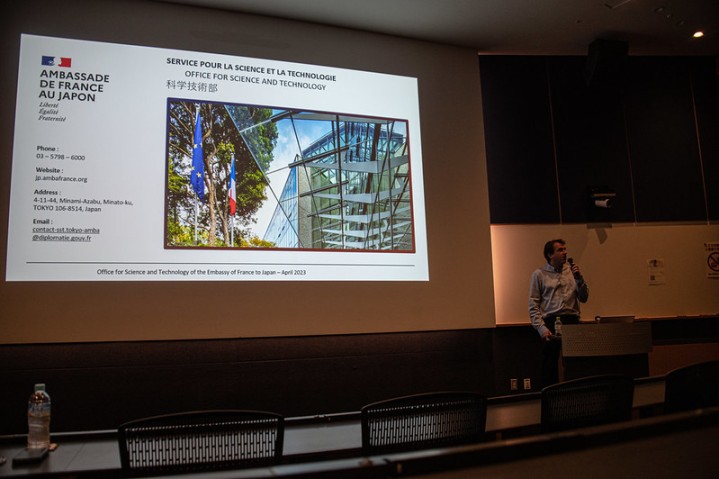
After the event, participants and visitors were given the opportunity to tour the Cybernetic Humanity Studio, recently established at OIST by Dr. Shunichi Kasahara, where they could talk to researchers and try virtual reality experiments for themselves. Dr. Lécuyer highlighted that there is a lot of non-verbal information in the VR-user experience. “Our field is related to human-computer interaction and you definitely have to try it!” he said.

Written by Nic Shannon and Merle Naidoo
For press enquiries:
Press Inquiry Form
